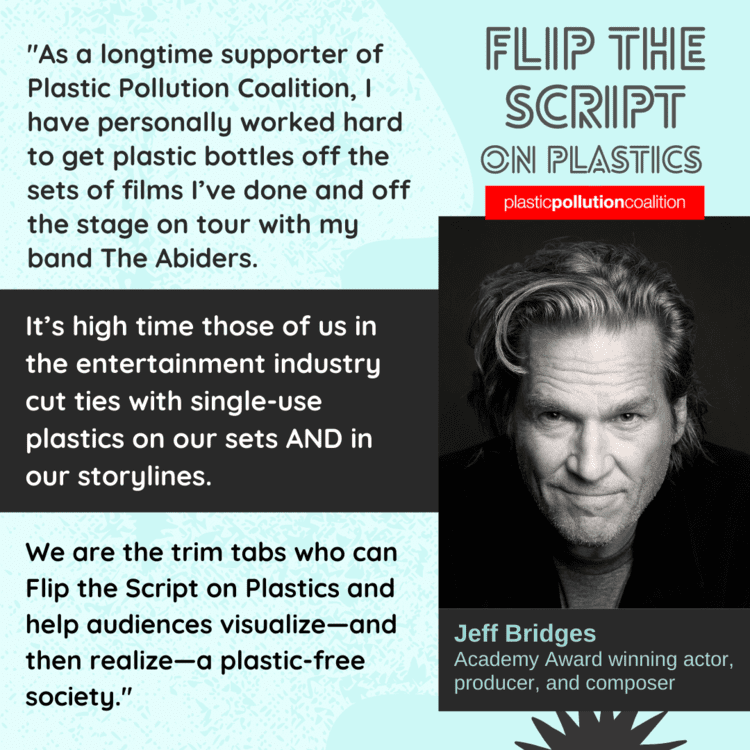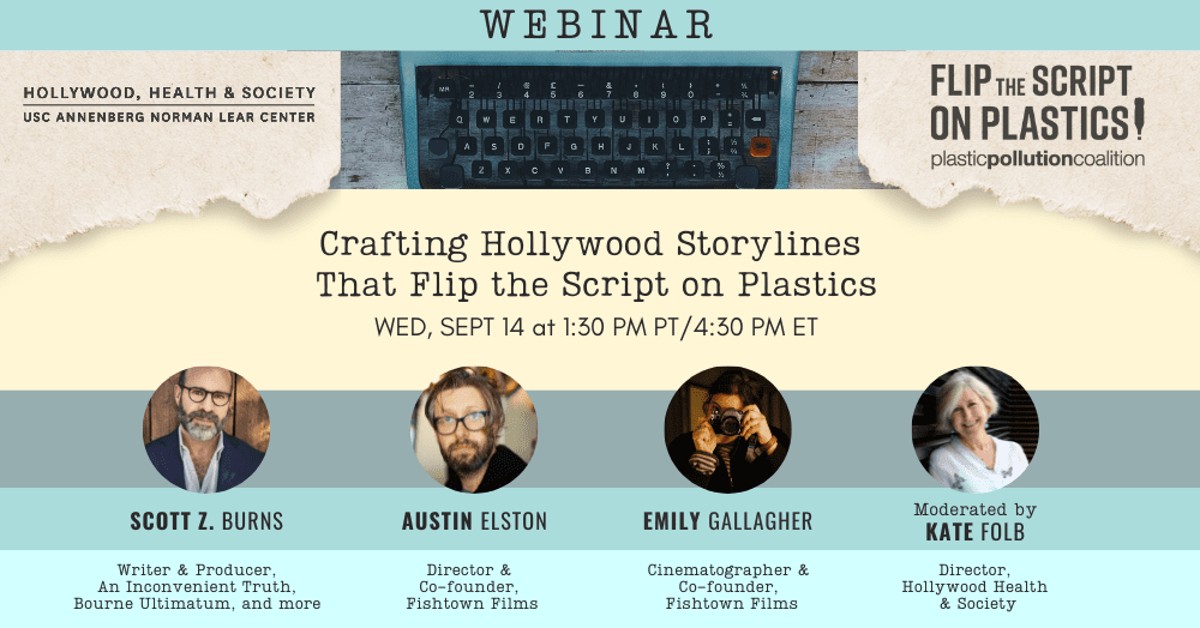Removing single-use plastics from Hollywood: how one initiative is trying to clean up the act, on and off camera.
Two weeks ago, I tuned in to a panel discussion all about plastics and film. Namely: how do we remove single-use plastics (or, SUPs) from Hollywood, both behind the scenes and on camera? The Plastic Pollution Coalition had recently launched an initiative dubbed ‘Flip the Script on Plastics’ as a way of tackling just this thing.
Removing SUPs from film
The conversation took place between the Plastic Pollution Coalition (PPC), Kate Folb (Director of Hollywood Health and Society), filmmakers Austin Elston and Emily Gallagher of Fishtown Films, and Scott Z. Burns, writer and producer (whose past work includes co-production of ‘An Inconvenient Truth’ and current work includes Apple TV’s ‘Extrapolations’).
(For those wondering, I’ve been a fan of the PPC since I first started diving into the world of plastic pollution. I even had the privilege of hearing Daniella Russo speak at the 5th International Marine Debris Conference back in 2011!)

How one production company went zero-waste
Fishtown Films produced what is likely the first zero-waste film ever, and it was really inspiring to hear how they did it. From plant-based catering to supporting local consignment shops for costumes and salvaged props, the production team generated almost no waste. Gaff tape was about as bad as it got! But, it took three years of work to get there.
My takeaways from the discussion:
- For regular everyday citizens of this earth, we have to demand sustainable entertainment. This means asking production companies about their sustainability policies and how they are handling SUPs. Then, we need to support those who are trying to make a difference.
- For filmmakers and producers, there has to be a willingness to have hard, awkward, sticky conversations about how to do things better. This means rethinking things like product placements of SUPs and the idea of luxury, among many other things. (Luxury here means how actors are treated on and off-camera: many still expect to be shuttled around in big, boxy vehicles with all sorts of disposable amenities.)
- Hollywood is the 21st-century influencer. If we want people to reduce their reliance on SUPs, one way to do that is to model better behaviour on-screen: show people using reusables instead of single-use disposables, for instance.
I remember so clearly when I was interning at Seventh Generation and being excited to see their products on-screen during TV shows or movies (I think a box of Seventh Gen tissues even made it onto the show Weeds!). Of course, I had a bias: I worked at the company and loved its products. But it does make you wonder how our subconscious minds might interpret that information if we see it enough.
Stop it with the bottled water!
This is a bit of an aside but something that came up during the PPC webinar…
For PETE’S SAKE, stop handing out single-use plastic Fiji water bottles at the Emmys! That they are made of recycled content is so far besides the point it’s ridiculous. The point is to not use the bottles at all.
What I loved most about this webinar was that each panellist really emphasized mindfulness and awareness above all else. We simply can’t tackle a problem if we don’t know it exists. Therefore, the biggest work (still) is to build our own collective awareness around single-use plastics in film and television.
If you’re a filmmaker or even if you’re not, you can learn more about the PPC’s campaign by visiting their website, signing the pledge, and advocating for SUP-free films!
“There’s almost nothing we do in our lives that couldn’t be done sustainably. We just have to find some awareness about it. Keep asking questions.”
Scott Z. Burns, Co-Producer, Screenwriter






One Comment